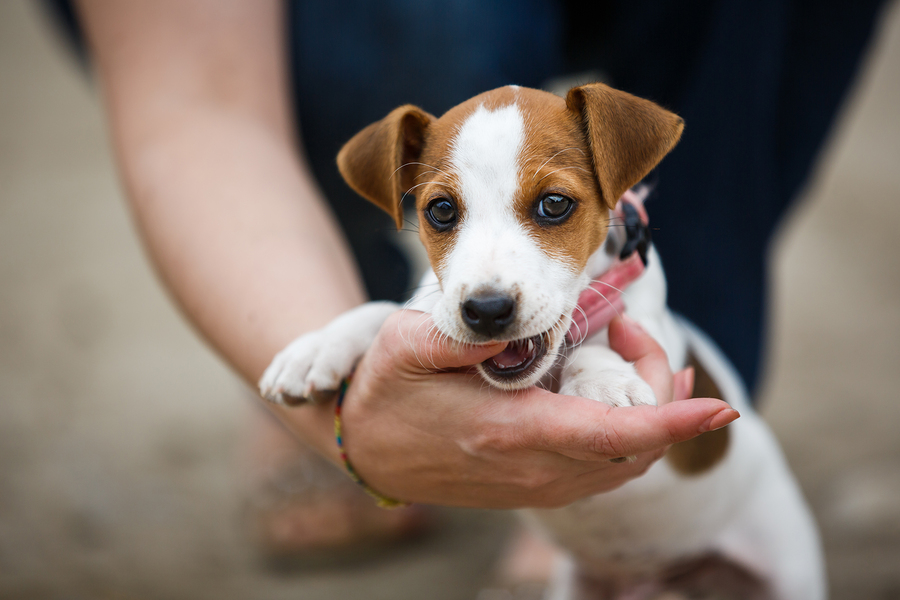Puppies can be an expensive addition to your family, with some breeds in Australia costing in excess of $3500. Therefore, it is no surprise that when some new pet owners get home they are disappointed when their puppy immediately starts destroying everything – including their fingers and toes.
As a first-time pet owner, it can be overwhelming when your puppy is not only chewing up the house but hurting yourself and others. It is important to nip this habit in the butt quickly (pardon the pun) before your puppy grows and becomes a bigger biting risk to other dogs and members of the public.
That is why we have gathered our top 10 tips for stopping your new puppy’s bad biting habits.
So, let’s crack into it!
How to stop a teething puppy 101
1. Be a tree
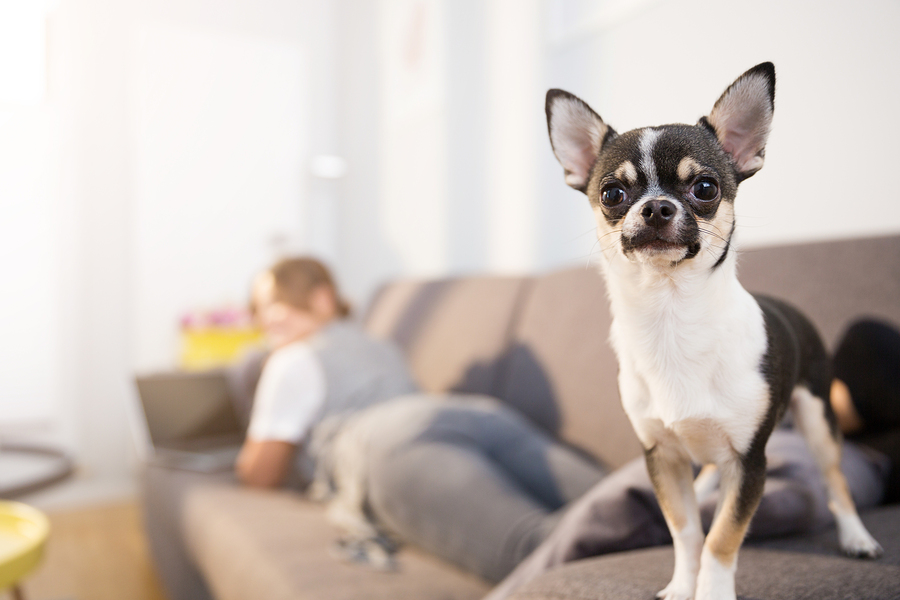
Our favourite technique for teaching a teething puppy not to nip during playtime is to effectively ‘be a tree’. This means standing upright out of your puppies reach and ignoring them after they take a naughty nip. This easy for kids to remember, but does require persistence and patience.
As soon as your puppy takes a bite that is too rough, stand up, cross your arms and avoid eye contact with them. Ignore them until they calm down and are no longer nipping, biting or jumping up and then you may return to play time.
Soon your dog will realise that you will play with them when they are calm, but when they bite fun time will stop.
2. Socialise
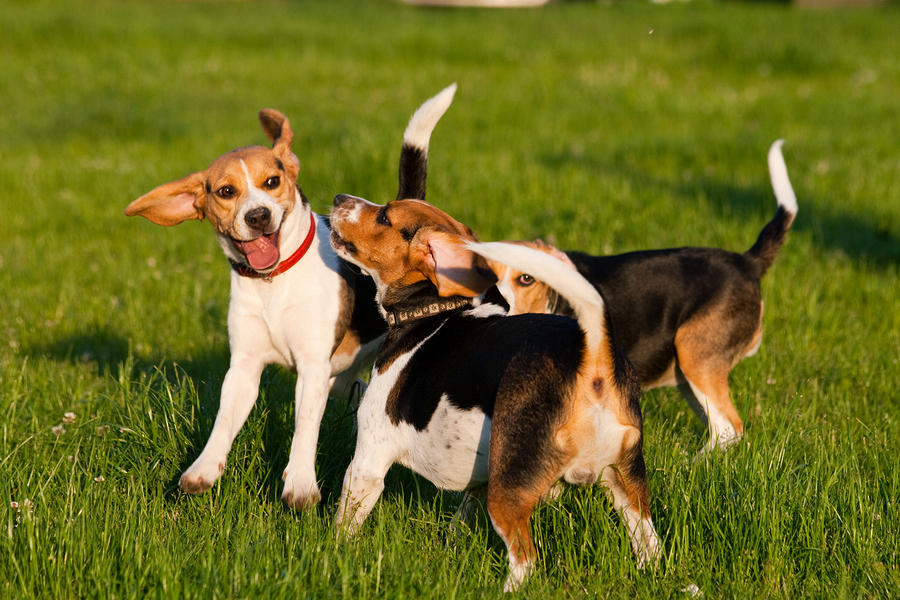
Many owners and puppies alike get frustrated with understanding one another because let’s face it, we don’t speak the same language. Therefore, it is important to socialise your puppy, so other dogs can teach your pet what is acceptable and unacceptable biting behaviour.
Ensuring your pup has enough time in its litter (at least 8 weeks) and gets ample time with other dogs can really help rid your puppy of naughty biting behaviour.
So, whether it’s inviting over a friend’s well-behaved dog that can act as a mentor to the young pup or enrolling them in puppy class, so they can learn from their peers, it’s important for your dog to learn good and bad behaviour from its own kind early.
3. Reward good habits
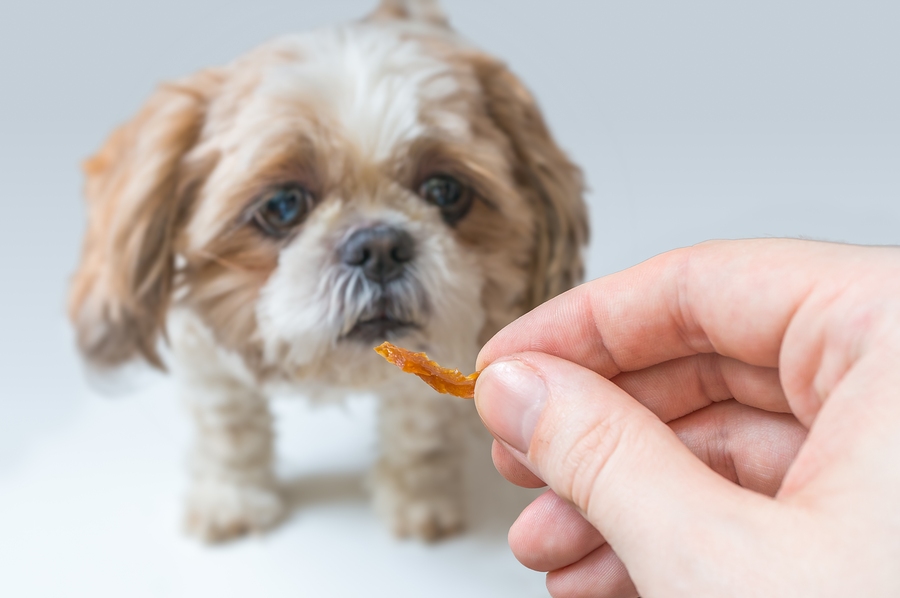
When your dog is exploring the world with their mouth, as a human would with their hands, it is important to reward your puppy for gentle play. If they are taking soft bites, reward them with affection and treats.
Reassure the puppy in a positive tone that they are playing well to further ingrain good habits.
4. Switch it up
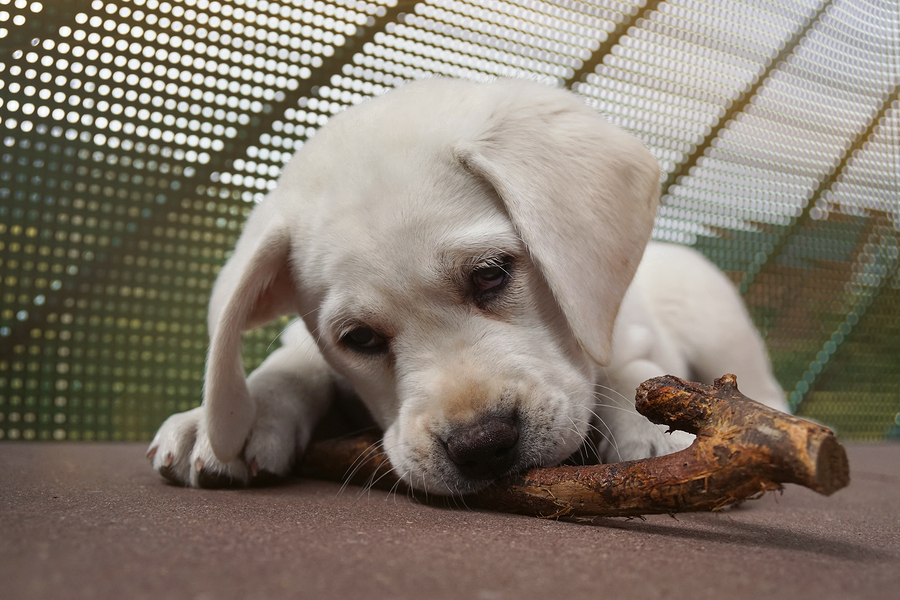
At the start, some puppies seem so intent on biting it is like there is no light at the end of the tunnel. Sometimes puppies are just playing, but sometimes they are going through a painful teething phase and are just looking to chew anything and everything to get some relief from the constant aching; whether it’s your bone or your suede shoes. Buying teething toys that have been designed to offer them some relief is a way you can ease some of your puppy’s pain.
However, your puppy is young and absentminded meaning it could easily misplace and forget that their new toy exists.
Don’t be discouraged, you just need to persistent. When your puppy is chewing on something that isn’t meant for puppies’ mouths, take the bad item away and switch it with their teething toy; this is a valuable way to teach your puppy what they should chew and shouldn’t.
With your persistence, in time they should start to seek out their toys when they want to have a chew.
5. This is not a game
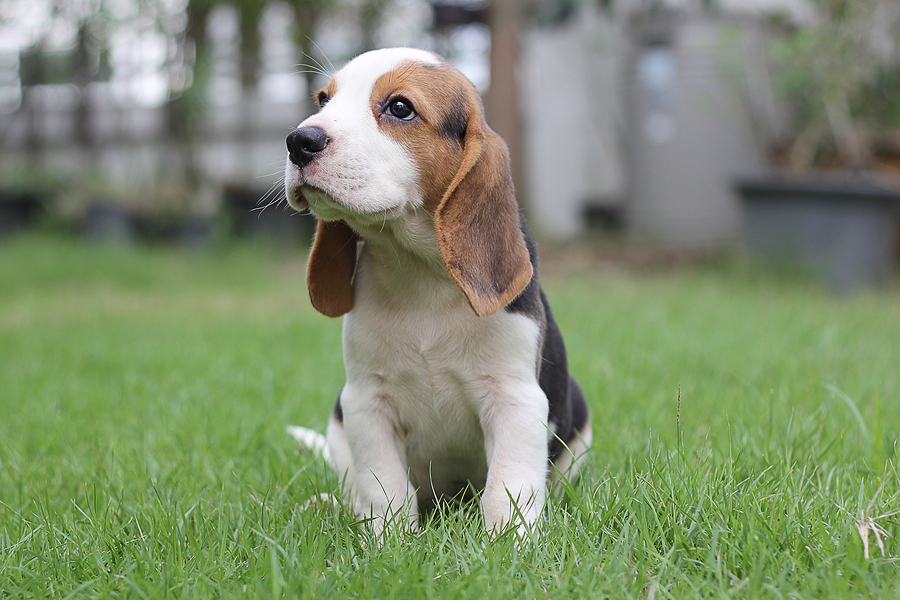
For puppies who do think this is all a game, it can be hard to ignore them and ‘be a tree’ when they refuse to stop tearing up the house and biting at your feet.
Despite this it is very important not to run from them, hop from foot to foot, shout, wave your hands in their face or pay them any sort of attention; otherwise, they will just think you are enjoying this play time and are playing some new fun game.
Wear sturdy shoes so you can ignore them effectively, and if they won’t settle put them on a time out – play time must stop if they are exhibiting bad behaviour!
6. Be the pack leader
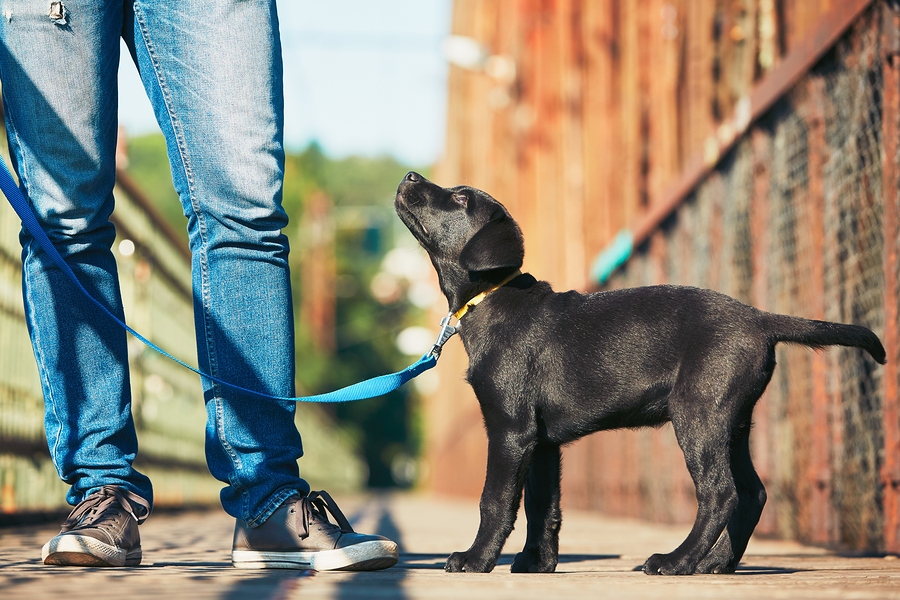
Training your dog and positioning yourself as a pack leader is a good way to gain status from your puppy, as not just a playmate, but a leader. If you are not assertive with your puppy, not only could this result in your dog not taking you seriously, but it could make your puppy anxious.
Your puppy could grow into poor behaviour (such as biting) in a way to instate itself as the leader of the household or become aggressive to others out of fear for themselves and you, they’re a member of their pack. If you begin training your dog to obey early it can be a relief for them as they find their place in the family.
Training also offers mental stimulation, which will help burn that puppy energy that may be building up and coming out in rough play.
7. Put up boundaries

Your puppy should learn that with good behaviour they are rewarded with more freedom. Just like humans, responsible parents offer their children more freedom as their kids grow up and prove they can follow rules authority figures set.
Likewise, your puppy shouldn’t have run of the house once they step through the door. We recommend restricting their access to certain areas, the garden, family play areas and rooms with tiled floors (easier to clean up any accidents).
Keep your puppies out of bedrooms, off beds, and potentially off couches until they learn good behaviour. Having space away from your puppy’s biting can also allow you to collect yourself when the nipping is getting painful, and the puppy is reminded once again they cannot do whatever they wish.
8. Yelp!
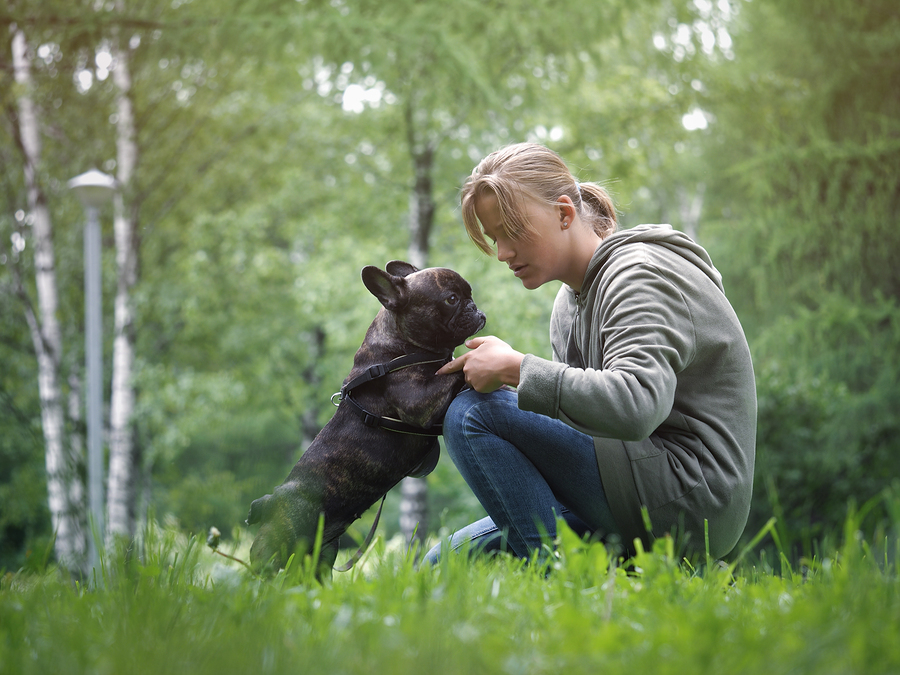
As mentioned above, we don’t speak dog-enese, but this shouldn’t stop you from trying to communicate with them in a way they understand. When your dog bites down hard, it can be helpful to let out a high-pitched yip.
Your puppy is exploring the world and trying to figure out how to interact with everything appropriately, when you let out a yip, just like their litter-mate would if they bit too hard, they would hopefully start to understand they need to lessen their bite strength.
After yipping, still, be sure to do tip 1 (be a tree) or else the puppy will disregard the yip once you continue to shower them with affection.
9. Give them something soothing
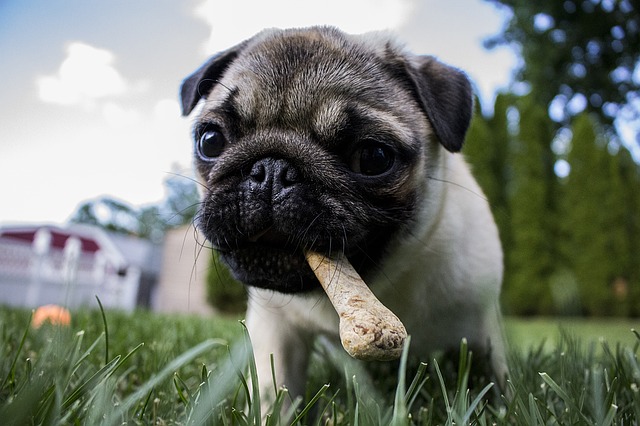
If your puppy seems to endlessly be going through a biting phase, then their teething might really be bothering them.
Consider ways you can ease their pain, whether it’s teething toys, cold chewable snacks or just something they could really tug on, look up some affordable DIY solutions to care for your pup through this troubling time.
10. Make it yucky
https://www.youtube.com/watch?v=X6yosu5nzdM
If your pup will not stop chewing, consider a deterrent like the anti-chew dog sprays. This will not hurt the dog but will leave a bitter taste in their mouths the next time they try to chew a table leg. Do your research and find a spray that is good quality and has been proven effective or follow a recommended DIY anti-chew recipe online for a more affordable option.
A new puppy can put a strain on your emotionally, financially and physically, but the rewards of a new family pet can easily outweigh the costs with the right outlook. Leading your dog through this challenging teething time is a great way to bond and gain your pet’s trust. With persistence, patience and a well-informed approach, you can diminish your puppies biting and form a stronger relationship with your pet.

